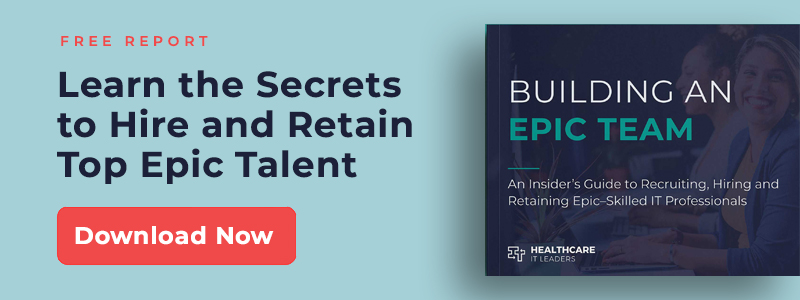EHR Training for Healthcare Providers: 5 Tips for Success

It’s a paradox of EHR training: healthcare providers—those who will arguably use the system the most—often have the least amount of time to learn the system in advance of Go-Live.
Of course, everyone in a hospital is busy, but those giving care—physicians, PAs, NPs and other clinicians—are especially busy. Their schedules can be unorthodox (i.e., not the typical 9 to 5) and taxing, requiring understanding and accommodation by the planners of your training program.
If you ignore the special training needs of providers, you risk alienating a critical group of end-users.
>> Free eBook: Epic Hiring Guide for Hospitals
Instead, my advice for training directors is to be flexible and collaborative. Below are some of my tips for success (as well as a few pitfalls to avoid) when planning EHR training for providers.
Double-check Staff Lists
It’s common to slot providers by their specialties or titles into training tracks months in advance. But staff lists, often drawn from HR systems, should also be double-checked with clinic and unit managers to ensure accuracy and to confirm any training assumptions based on titles.
To cite a personal example, I once received a list that included an OB-GYN who would logically be slotted for Epic Stork training. Upon checking, however, the physician was a Gynecological Oncologist and, in fact, needed Epic Beacon training.
Another thing to check when reviewing lists is to ensure that all providers are in, and have access to, the learning management system.
Communication Plan
I like to have a communication plan specific to providers that outlines the entire training process and timelines. I want to give providers plenty of time to adjust their schedules, as needed, and to ensure that details like classroom locations and the requirements for eLearning courses are communicated and clearly understood.
Another objective of my communication plan is to build rapport and trust. I want providers to understand the goals of training and to feel confident that we will help them be successful.
Scheduling Considerations
Training schedules should reflect the unique schedules of each discipline as well as the special requirements of each site. I like to meet with departments and Provider Champions before I build out a training schedule.
In general, I know a surgery day isn’t a great day to have full day of training on the surgery module of your EHR. Likewise, putting anesthesiology training in the morning is a recipe for failure. Starting those classes after 3p usually works better for anesthesiologists.
Providers, especially busy physicians, seldom schedule themselves for training classes, so I like to be proactive—putting a process in place to reach out to providers’ offices to schedule the classes. Even after that, it’s important to track provider registrations closely. I’ll often have a Clinical Champion reach out if a provider doesn’t register for class.
Community Providers
Don’t forget about the providers outside of the hospital. If they will be using the new EHR—even infrequently--they should be incorporated into your training plan and will require access to the learning management system and eLearning.
Provider Support
Finally, I like to have full-time support staff dedicated exclusively to the provider community. Even with the best laid plans, I know there will be questions, last-minute schedule changes and some legitimate concerns. I want a competent, service-oriented support team answering provider emails and phones calls and resolving issues as quickly as possible.
Vicki Davis is Healthcare IT Leaders VP, EHR Activation and Training. She has led large-scale training and delivery teams at Providence Health and Systems and Stanford Health and has overseen classroom-based and online learning programs for tens of thousands of end-users over the past decade.
